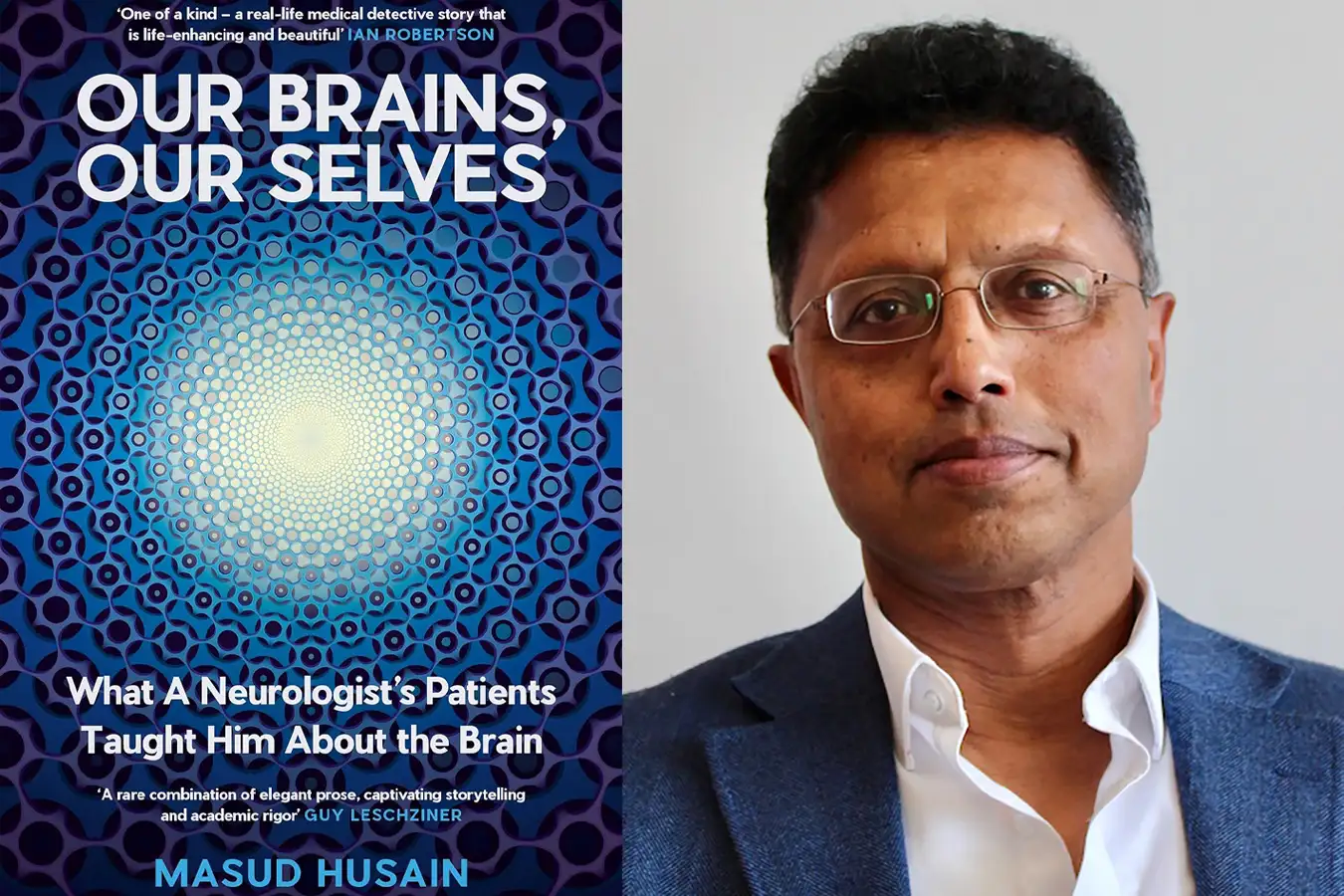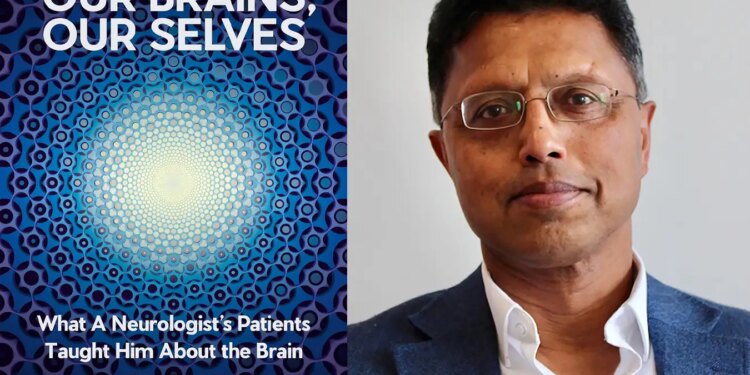
The New Scientist Book Club stepped away from science fiction for our October read, turning to the winner of the Royal Society Trivedi Science Book Prize instead, serendipitously announced just in time for us to start on our next literary adventure.
Six books had been up for the award, from Daniel Levitin’s Music as Medicine to Sadiah Qureshi’s Vanished: An unnatural history of extinction. Judges picked Masud Husain’s Our Brains, Our Selves: What a neurologist’s patients taught him about the brain and they praised it effusively, calling it “a beautiful exploration of how problems in the brain can cause people to lose their sense of self”, and citing how these medical histories are “skilfully interwoven with Husain’s personal story of moving to the UK as an immigrant in the 1960s, where he found himself grappling with his own sense of belonging”.
The first thing to say is: our book club members are much tougher judges than those on the panel for the Royal Society prize! While I think we were excited to get to grips with this book, and to venture into the world of non-fiction for a change, there were many issues that were raised and picked over by our readers.
Let’s tackle the positives first. For me, the book really got me thinking towards the end, when Husain tackled the idea of the self, how it has changed over the centuries and how the brain conditions discussed in the preceding chapters affected the sense of self of each of Husain’s patients.
Katherine Sarah agreed on this aspect. “Not only is it an interesting insight into the brain and how it works, it also explores what determines ‘self’ and important skills that make us accepted by society,” she writes in our Facebook group. Katherine has an interesting perspective on this, as someone who moved to live in another country where she couldn’t speak the language, which she found isolating.
“It really resonated with me how much language represents a part of yourself and how hard it is to portray yourself without it,” she writes. “Interestingly it also links to motivation which was inhibited in another patient the author described. When I couldn’t communicate in the language of my new country I also became extremely shy and it was hard to motivate myself to do simple tasks. It’s really interesting to read in this book about patients where only one specific aspect of their brain/personality is inhibited because in reality everything is interconnected.”
Gosia Furmanik also enjoyed this part of the book. “For the most part, I did enjoy it – I think it was written in an engaging way, easy to read and the cases were interesting. I also appreciated the musings on identity and migration at the end of the book, maybe this was relatable to me because I migrated twice in my life,” she writes.
Judith Lazell was a fan: “This is very interesting and very readable. Great choice,” she says. And Jennifer Marano enjoyed the chapter about Wahid, the bus driver who develops dementia with Lewy bodies and starts hallucinating. “The thing it has changed most is my understanding of vision, including hallucinations,” she writes. “The world has always seemed so solid and real, but what I see is what my brain makes of the stimuli that enter my eyes. Makes me wonder what other people “see”.”
When I spoke to Husain, one of the things I wanted to ask him about was how he slotted everything together, because I did find it a little contrived at points, how he’d be, say, strolling through Soho pondering a recent patient and then notice a memorial plaque to Samuel Johnson. “The irony made me smile,” he writes. “That afternoon I had seen a man who was having difficulty remembering words and here was the haunt of the great lexicographer, Samuel Johnson, the man who had produced the first English dictionary of any note.” Cue a raft of paragraphs about lexicography.
Husain explained in our chat how he fictionalised cases to protect patients, and he’s writing a narrative, so it makes sense that he needs to put a story together. But, as I said, for me it felt a little forced.
Niall Leighton also didn’t warm to this aspect of the book, but took particular issue with the patient discussions Husain writes about. “I quickly became aware that much of the dialogue with Dr Husain’s patients appeared stilted, and I was left wondering how much of this, along with his descriptions of other events, might be fictionalised to some, even a large degree,” he writes. “This became increasingly irritating as the book progressed.”
Gosia agreed: “I’m glad I’m not the only one that noticed (and was irritated by) these things in the book! In the interview, the author did say that he fictionalised a lot of things about the patients to make them unrecognisable, so that might explain the dialogue, it was probably all invented.”
Others wrote about how you felt irritated by Husain’s ornate language. “Sometimes it seemed like the author would really prefer to be writing the ‘great British novel’ with florid descriptions that I found jarring in the context of a science book,” writes Jennifer.
Judith and Niall also found it jarring how Husain included definitions of words in brackets, such as “vertebrates (back-boned animals)”. “I would have thought anyone reading this book would be cognisant of these,” says Judith.
“I don’t know why he felt he needed to insult my intelligence by giving definitions of words like “atrophied”, “neuron”, and even “vertebrate” (more than once),” says Niall. “This may have been the action of an overzealous editor, but I was left wondering who he thinks his audience is.”
Personally, I think this is a tricky one: our book club members are a pretty informed bunch, and may well know the meanings of these terms, but it’s a tricky line to walk between being informative and being patronising.
The real issue for some members was Husain’s use of the word “normal” when talking about brain conditions. For example, writing about tests he ran on David, who became lacking in motivation after having two small strokes, he writes: “We got him to do the traffic light test again and this time he behaved differently. Like normal people, he started to take risks.”
“Some phrases, like… referring to healthy people as “normal,” really irked me. What even is normal? Who gets to decide that?” asks Gosia. “Unhealthy people are still normal, illness and disease are perfectly normal aspects of the human condition. For such a philosophically inclined book, this seemed glaring.”
Niall agreed. “I quickly found myself extremely alienated… I’m neurodivergent, and the use of the word “normal” will irritate, simply because the whole question of what constitutes “normal” is a vexed one,” he writes.
Jennifer might have had quibbles with Our Brains, Our Selves, but she made it to the end and says she was glad to have done so. “After finishing, I watched part of the New Scientist interview with the author and it made me feel more tolerant of the aspects of the book that rubbed me the wrong way,” she says. “In the end I had to give him credit for being passionate about his work, writing a book, and getting it published, something I have not done and probably never will in my life.”
Never say never, Jennifer: perhaps one day we’ll be reading your own book in the New Scientist Book Club! In the meantime, it’s on to our November read, another book that delves into the mysteries of the brain, but this time through the medium of science fiction. Come and find out more about Grace Chan’s Every Version of You, set in a devastated version of our world where a desperate humanity is uploading itself to a virtual utopia to escape their dying reality. But how will these virtual brains compare to the selves left behind?
Topics:
Source link : https://www.newscientist.com/article/2502192-our-verdict-on-our-brains-our-selves-a-mix-of-praise-and-misgivings/?utm_campaign=RSS%7CNSNS&utm_source=NSNS&utm_medium=RSS&utm_content=home
Author :
Publish date : 2025-10-31 09:40:00
Copyright for syndicated content belongs to the linked Source.





